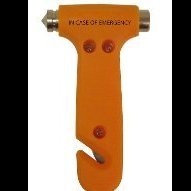CP Foods’ compartment model shields spread of “avian influenza” -The World Organisation of Animal Health
-
Recently Browsing 0 members
- No registered users viewing this page.
-
Topics
-
Popular Contributors
-
Latest posts...
-
13
Crime Bomb Hoax Grounds AirAsia Plane in Phuket
That's not how they do it. If he had actually had intent to use a bomb, that 'trick' of suggesting a bomb in his bag could have been a diversion. The whole plane must be inspected. -
41
Humza Yousaf: Immigration gamble by Labour a dangerous mistake
I am not struggling with anything, you said, and I quote It's there in black and white, you called out Farage's racism, but cannot back it up. You are the one struggling. And I'll leave it that and come back after the Hamilton By-election, which I believe the result will blow another one of your little fibs right out the water. Reform will come 1st or 2nd, which does not equate to your assertion that See ya on the 06 June, I won't point and laugh, honest -
65
Have you ever noticed this on the Sky Train?
Yes indeed, those places are there precisely for the farangs, understand that, it indicates the country's hospitality. -
13
Crime Bomb Hoax Grounds AirAsia Plane in Phuket
You're crazy. Maybe but if it is a bomber that passenger could probably devise a way to bypass the initial security check. -
10
Cheap International Phone Calls to the U.K. Using A.I.S.
I use Yolla or myteklo they are both so cheap and great for Landlines and mobile -
22
Trump’s attacks on the media
Steven Beschloss “This thin-skinned tyrant is determined to strip the White House of actual reporters & threaten media companies if they dare to question him. It’s an appalling sign every reporter in the Oval Office didn’t speak up or get up and leave in support of NBC’s Alexander.”
-
-
Popular in The Pub
-





.thumb.jpeg.d2d19a66404642fd9ff62d6262fd153e.jpeg)




Recommended Posts
Create an account or sign in to comment
You need to be a member in order to leave a comment
Create an account
Sign up for a new account in our community. It's easy!
Register a new accountSign in
Already have an account? Sign in here.
Sign In Now